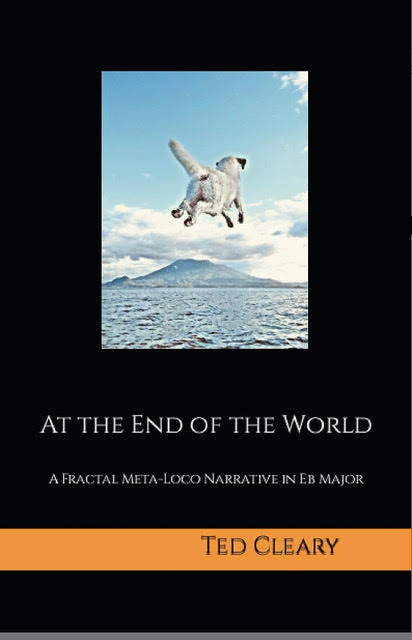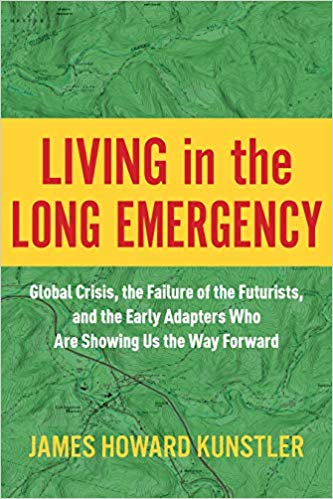Support this blog by visiting Jim’s Patreon Page
And thanks to all my Patrons for your support!
Dr Tim Morgan is a leading exponent of the view that the economy is an energy system, not a financial one. This was set out in the report Perfect Storm, when Tim was global head of research at leading international finance firm Tullett Prebon, and in his book Life After Growth.
Since that book was published in 2013, his focus has been on modelling the economy as an energy system. His model – the Surplus Energy Economics Data System (SEEDS) – produces results that differ radically from models which accept the premise that energy and resources play no more than supporting roles in an economy shaped and driven by money.
His research can be found at: https://surplusenergyeconomics.wordpress.com/
The KunstlerCast theme music is the beautiful Two Rivers Waltz written and performed by Larry Unger.
Direct Download: https://traffic.libsyn.com/secure/kunstlercast/KunstlerCast_344.mp3
Please send questions and comments to jhkunstler@mac.com
This blog is sponsored this week by:
McAlvany ICA.
To learn more visit: //icagoldcompany.com/
And also by:
Sage Restoration *
high quality, traditional varnishes, paints
and other products for building preservation.
SageRestoration.com





 JHK’s Three-Act Play
JHK’s Three-Act Play








No comments left? That’s odd…
As always this was a fascinating conversation but the main thing I took away from this was the guest’s vociferous objection to the idea of “extrapolation” of data or trends (and rightly so) when it comes to economic forecasting, energy and the financial system, whilst at the same time he clearly supports the idea of manmade climate change, which relies heavily on the idea of the extrapolation of data and modelling which has almost never proven to be even remotely accurate. Cognitive dissonance perhaps? Nevertheless enjoyable and informative as always.
Ah-ha, indeed.
“Just because you can understand ‘money’ doesn’t mean that you are also understanding the ‘economy’; though they are closely related, they don’t mean the same thing at all.”
Jim, thank you for what is for me a very timely interview with Dr. Tim Morgan. Last week I finished reading his book, published in 2013; though published nearly a decade ago, it remains a very helpful guide to a better understanding of how the real economy is a function of energy primarily, and not money.
Gail at Our Finite World has a new post up about the faltering world economy:
https://ourfiniteworld.com/2021/05/27/dont-expect-the-world-economy-to-resume-its-prior-growth-pattern-after-covid-19/
On the issue of inflated stock prices, many corporate executives rely on stocks for compensation. They have a strong incentive to buy back the company stock to diminish the number of shares relative to the value of the company’s capital. Not too long ago this was considered stock manipulation and a form of fraud. Essentially the executives are being rewarded with a larger share of the company without actually having to increase the quantities of stock. The value of the stock has less to do with the company’s capacity to turn a profit and more to do with the idea that money is a proxy for wealth.
Need a little better definition of “money” please. Fiat currency — printed on paper or created digitally — has no intrinsic value and can be created in unlimited amounts.
However, precious metals — in particular gold and silver, which have served as money for millennia — do have intrinsic value and cannot be created in unlimited amounts, rather they must be mined and refined (using lots of energy).
“Research set out in this repor [Perfect Storm], suggests
that the global average EROEI, having
fallen from about 40:1 in 1990 to
17:1 in 2010, may decline to just
11:1 by 2020, at which point energy
will be about 50% more expensive, in
real terms, than it is today, a metric
which will carry through directly into
the cost of almost everything else –
including food.”
It is now 2021. Where can the latest data on the current Energy Cost of Energy be found? In light of the obvious inflationary price trends in food, building materials and other stuff, there tremendous face-validity to the idea that economies the world over may be at or very close to the drop-off point.
My model (SEEDS) has ECoE at 8.9% for 2020, and 9.2% for 2021.
This is referenced regularly at my site, and I’m working on ways to make this information accessible.
Inflation as generally reported references CPI, meaning it excludes asset price inflation.
An economic model based on recognition that the economy is an energy dynamic. http://www.crownsterling.io/
Full credit to Dr Morgan in trying to make sense of our economic world. I just wish that logic would be conveyed to the Fed chairman. Anyway, great podcast!
Full credit to Dr Morgan in trying to make sense of our economic world. I just wish that logic would be conveyed to the Fed chairman. Anyway, great podcast!
What a good news! well appreciated. Thanks | https://www.builtrightind.com/